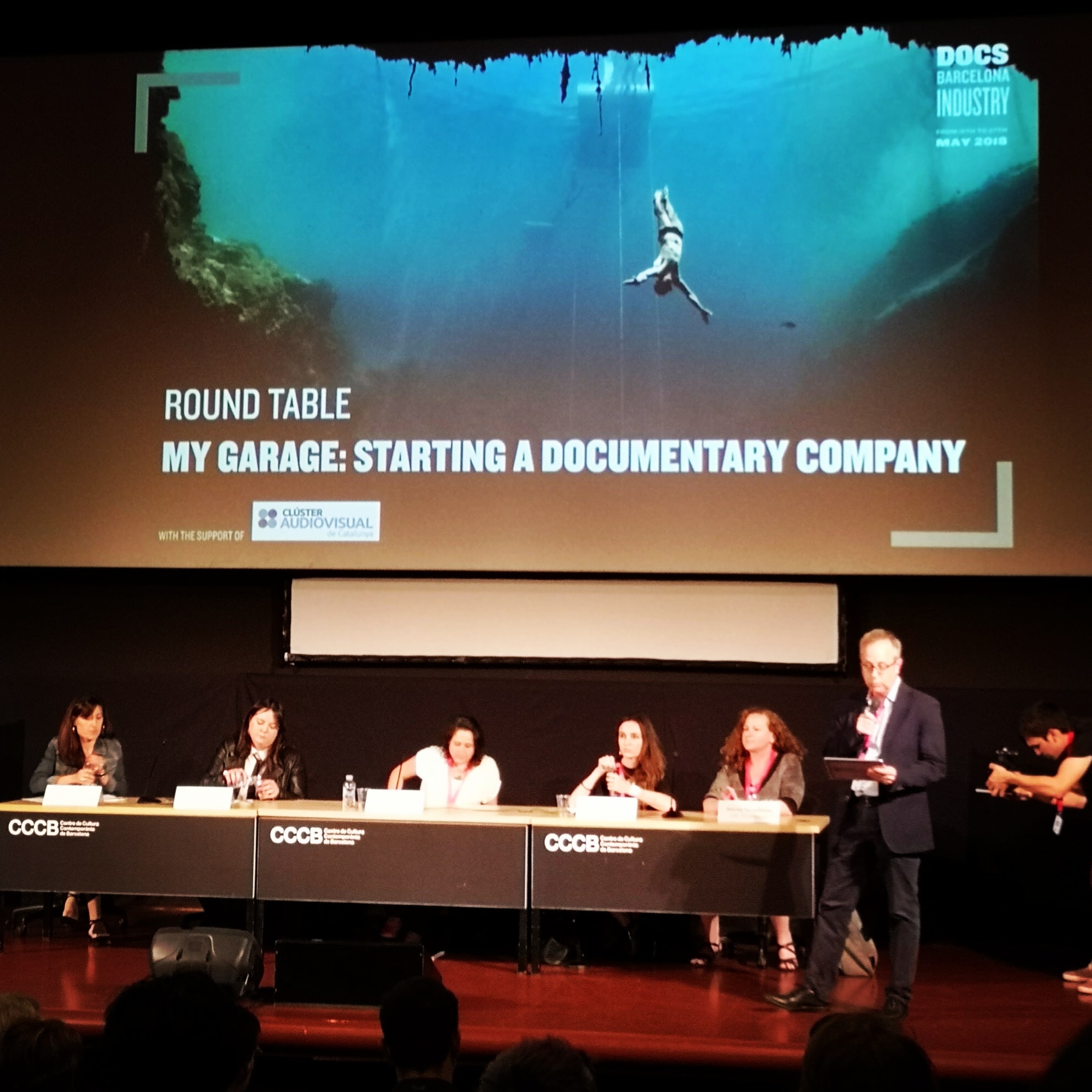When I attended DocsBarcelona to pitch NEWTOPIA, I had the chance to listen and learn about starting a documentary company from 4 other documentary filmmakers on a round table discussion. It turned out to be a very depressive talk! But, where there is darkness, there is light. In the end of the tunnel…
It’s kind of comforting to hear that it is not only me who are struggling in this business, but at the same time it is very disencouraging. The documentary business is exceptionally hard, and basically one safe way to a life in financial poverty. Unless…
Ok, before I will go into predictions and possible solutions… The 4 female filmmakers who took part in the discussion were, from right to left, Stacey TenenBaum (H2L Productions), Paula Palacios (Palacios Films & Moradas Films), Laura Collado (Truday Films) and Eli Dalmau (Ostia Films) moderated by Noemi Cuni (Broadcaster Media).

These women have been in the industry for many years and have produced and directed several awarded and internationally acclaimed films. They gave us their personal experiences in managing their production companies and how to keep them going. In most cases they had been doing other work such as commercials and other commissioned work in order to sustain business.
They all found it harder to make pre-sales of their films as the television viewer base is heavily declining. For this reason television channels are naturally more careful. There was an agreement that it is very hard to earn money on the films after they are finished. So, basically they adviced everyone to fully finance their films before going into production, which is very hard as well.
Netflix was brought up as a big player disrupting the market, but none of them really knew how to get in touch with Netflix. The impression was that they are secretly present on markets with gatekeepers only known to a few selected people. Netflix could buy films by the end of production, and would then often put money on the table that is more than all the investments from television channels combined. This further complicated the situation.
All in all there were little positive things to be said about starting a documentary company, except for being able to tell stories and work in a creative environment.
The whole round table discussion left me with a feeling of dispair, but then I started to really think about what was going on. Documentaries are gaining popularity worldwide, and the common misconception that documentary films are not entertaining starts to crumble.
For instance, lately I saw Icarus by Brian Fogel, off course a Netflix Original, that won an Oscars in 2017. Now, I am not interested in bicycling at all, but the documentary turned out to be one of the best I have ever seen. Brilliant film and hugely entertaining.
I think there is no doubt that the documentary industry is in some kind of transition, especially in the way that documentaries are distributed and marketed. I choose to see this as a great opportunity, rather than a sad thing.
This is the time for innovation. As for me, I welcome this change, and see opportunities that wasn’t there previously. The power structure of the game is changing, and the fact that television is losing its grip, is only an effect of the market and technology. There is no reason to fight this development. It happened in the days of Luis Lumière, and will continue. Long live disruption!
I think new solutions will come out of this situation that will turn out more benificial for the filmmaker, resulting in better films and higher post-release income.
In my podcast with Beverly Banks I look into new ways of marketing and producing documentaries. If you want to know some of the gamechanging tactics that will emerge and empower the filmmaker, this is a golden opportunity.
If you want to be updated on my future podcasts and filmmaking news, please sign up for my newsletter.
